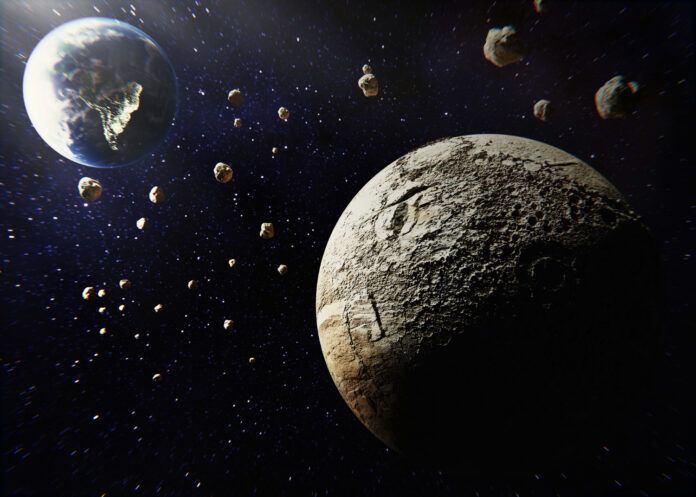Apophis asteroid: A narrow miss in cosmic terms, says science
In a development that reads like the script of a sci-fi blockbuster, scientists have recalibrated the odds of the ‘God of Chaos’ asteroid, known as Apophis, making a catastrophic impact on Earth. According to recent studies, while the asteroid will skirt dangerously close to our planet, the likelihood of an actual collision is slim.
Named after the Egyptian deity symbolizing chaos, Apophis had initially sparked concerns over potential close encounters with Earth slated for 2029 and again in 2036. Experts have now confirmed that the asteroid will pass within a mere 40,000 kilometres of Earth—a stone’s throw away in astronomical terms, but thankfully not close enough to pose any real danger.
However, the curiosity of scientists has led to further exploration of scenarios that could potentially alter Apophis’ trajectory, placing it on a collision course with Earth. Benjamin Hyatt, an undergraduate at Waterloo University and co-author of the study, spoke to ScienceIFL about the theoretical risks. “Considering Apophis’ close approach, we investigated the possibility of its path being diverted towards Earth, possibly by a collision with another asteroid,” he explained. Though such an event is highly improbable, the theoretical risk cannot be completely dismissed.
This cosmic game of billiards, where asteroids could potentially knock each other into Earth-threatening paths, has been closely analyzed. Professor Paul Wiegert, part of the research team, reassured that detailed simulations of our Solar System have predicted no such devastating collisions in the foreseeable future. “Our findings thankfully reveal no imminent threats from such collisions,” he stated, providing a collective sigh of relief for humanity.
Despite the confirmed miss by Apophis, the asteroid continues to captivate astronomers and the public alike. Not only did it represent one of the first credible asteroid threats to Earth upon its discovery in 2004, but it also remains a subject of vigilant observation and study. The insights gained from these cosmic wanderers offer invaluable clues to understanding the solar system’s history and the origins of our own planet.
Professor Wiegert, a member of the Institute for Earth and Space Exploration, reflects on the ongoing fascination with Apophis: “It’s the asteroid that keeps astronomers on their toes. Even though we’re safe from its pass, it remains under close watch.” As the celestial giant continues its journey through space, it serves as a reminder of the dynamic and sometimes unpredictable nature of our universe.
